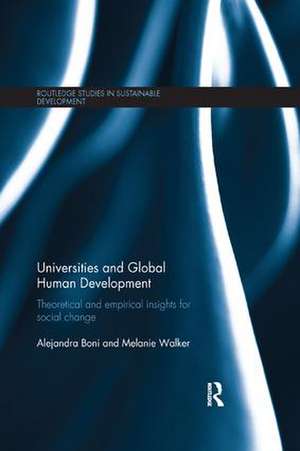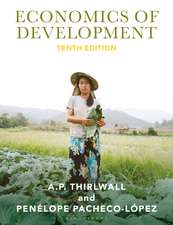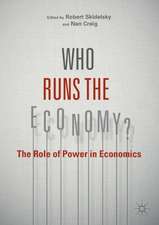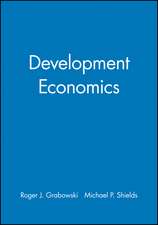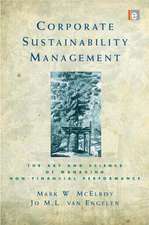Universities and Global Human Development: Theoretical and empirical insights for social change: Routledge Studies in Sustainable Development
Autor Alejandra Boni, Melanie Walkeren Limba Engleză Paperback – 21 dec 2017
The book argues that such an approach can elucidate development debates drawing on local, national and international issues and examples to show why higher education matters for sustainable development goals both in educational and social terms. It advocates a new arena of engagement with universities as key sites of development and freedoms beyond human capital and challenges development omissions and gaps around university education. The book explores how the human development approach addresses the following core ideas: the meaning of well-being, the idea of agency, participation and democratic citizenship, how to address inequalities, the relation between local and global, and the idea of equitable partnerships.
This book is addressed to researchers and postgraduate students in development studies, university education, the capability approach and human development community.
| Toate formatele și edițiile | Preț | Express |
|---|---|---|
| Paperback (1) | 430.37 lei 6-8 săpt. | |
| Taylor & Francis – 21 dec 2017 | 430.37 lei 6-8 săpt. | |
| Hardback (1) | 1055.51 lei 6-8 săpt. | |
| Taylor & Francis – 15 apr 2016 | 1055.51 lei 6-8 săpt. |
Din seria Routledge Studies in Sustainable Development
-
 Preț: 311.29 lei
Preț: 311.29 lei -
 Preț: 322.34 lei
Preț: 322.34 lei -
 Preț: 304.75 lei
Preț: 304.75 lei -
 Preț: 304.67 lei
Preț: 304.67 lei -
 Preț: 416.22 lei
Preț: 416.22 lei - 14%
 Preț: 300.46 lei
Preț: 300.46 lei -
 Preț: 371.68 lei
Preț: 371.68 lei -
 Preț: 333.09 lei
Preț: 333.09 lei - 18%
 Preț: 244.38 lei
Preț: 244.38 lei -
 Preț: 446.32 lei
Preț: 446.32 lei -
 Preț: 413.55 lei
Preț: 413.55 lei -
 Preț: 490.46 lei
Preț: 490.46 lei - 16%
 Preț: 273.65 lei
Preț: 273.65 lei -
 Preț: 484.47 lei
Preț: 484.47 lei -
 Preț: 369.77 lei
Preț: 369.77 lei -
 Preț: 392.24 lei
Preț: 392.24 lei - 12%
 Preț: 299.52 lei
Preț: 299.52 lei - 18%
 Preț: 997.93 lei
Preț: 997.93 lei - 18%
 Preț: 997.90 lei
Preț: 997.90 lei -
 Preț: 411.42 lei
Preț: 411.42 lei -
 Preț: 449.41 lei
Preț: 449.41 lei -
 Preț: 487.37 lei
Preț: 487.37 lei -
 Preț: 449.41 lei
Preț: 449.41 lei -
 Preț: 382.95 lei
Preț: 382.95 lei -
 Preț: 416.22 lei
Preț: 416.22 lei -
 Preț: 416.22 lei
Preț: 416.22 lei -
 Preț: 389.49 lei
Preț: 389.49 lei -
 Preț: 325.08 lei
Preț: 325.08 lei - 21%
 Preț: 270.41 lei
Preț: 270.41 lei - 18%
 Preț: 1055.51 lei
Preț: 1055.51 lei - 18%
 Preț: 1000.27 lei
Preț: 1000.27 lei -
 Preț: 479.96 lei
Preț: 479.96 lei
Preț: 430.37 lei
Nou
Puncte Express: 646
Preț estimativ în valută:
82.38€ • 89.51$ • 69.24£
82.38€ • 89.51$ • 69.24£
Carte tipărită la comandă
Livrare economică 21 aprilie-05 mai
Preluare comenzi: 021 569.72.76
Specificații
ISBN-13: 9780815355878
ISBN-10: 0815355874
Pagini: 212
Ilustrații: 5 Line drawings, black and white; 2 Halftones, black and white; 2 Tables, black and white; 9 Illustrations, black and white
Dimensiuni: 156 x 234 x 11 mm
Greutate: 0.32 kg
Ediția:1
Editura: Taylor & Francis
Colecția Routledge
Seria Routledge Studies in Sustainable Development
Locul publicării:Oxford, United Kingdom
ISBN-10: 0815355874
Pagini: 212
Ilustrații: 5 Line drawings, black and white; 2 Halftones, black and white; 2 Tables, black and white; 9 Illustrations, black and white
Dimensiuni: 156 x 234 x 11 mm
Greutate: 0.32 kg
Ediția:1
Editura: Taylor & Francis
Colecția Routledge
Seria Routledge Studies in Sustainable Development
Locul publicării:Oxford, United Kingdom
Public țintă
PostgraduateCuprins
Part 1 1. Introduction 2. Universities from an education and development perspective 3. How development theories understand universities 4. A foundation of human development and capabilities for higher education Part 2 5. Higher education policies from a human development perspective 6. University knowledge contributions and human development 7. Democratizing research: expanding capabilities through participatory action research 8. Student learning opportunities and outcomes Part 3 9. The Human Development Friendly University
Recenzii
"At a time when universities appear focused solely on competing in the higher education market and contributions to national economies, Boni and Walker offer an exciting, imaginative, hopeful and feasible alternative. In this book we are offered concrete examples of how conceptualising the purposes of universities in human development terms can be transformative. A coherent theoretical framework and real-life human development friendly cases exemplify how universities might contribute to social change by emphasising deliberation and participation in university governance; ameliorating social inequalities in access and participation; expanding a broad range of human capabilities; and, fostering human agency towards human development gaols." – Monica McLean, University of Nottingham, UK
"Social and economic change that benefits only elites, while other people’s well-being and choices stagnate, is not the kind of ‘development’ that is worth having. Nor is it only development ethicists like me who think that better is possible. The call for better development has become widespread. Universities and Global Development answers with a distinctive call for better education. Other books show how education contributes to development. This one shows how education that contributes to better development is better education. Melanie Walker and Alejandra Boni have given us a well-researched framework with which we can all set new standards for our universities, world-wide." – Jay Drydyk, Carleton University, Canada
"The authors of this book advocate for a multidimensional approach to the university oriented to social change [...]The book explores how a human and sustainable development approach can be applied to higher education, specifically participation and citizenship, how to address diversity, the relation between local and global, and the idea of equitable partnerships." - IAU Horizons
"This collection is quite useful to anyone trying to make sense of poverty trends in Asia, aswell as globally. The clearest answer provided to the question of the subtitle may be “it depends on how you define and measure poverty.” Context-dependent poverty lines may reveal more poverty than the IPL, and the extent of the current “non-poor” in danger of falling into poverty is significant; more so when future effects of climate change are considered. An examination of nutritional measures reveals the limits of relying on an exclusively monetary view, and gaps between ethnic groups reveal that many may be left behind. Ultimately, the evidence presented suggests that a sophisticated approach to measuring and defining poverty leads one to conclude that “incomplete achievements” is the appropriate answer." - Aurora Lopez-Fogues, Journal of Human Development and Capabilities
"Social and economic change that benefits only elites, while other people’s well-being and choices stagnate, is not the kind of ‘development’ that is worth having. Nor is it only development ethicists like me who think that better is possible. The call for better development has become widespread. Universities and Global Development answers with a distinctive call for better education. Other books show how education contributes to development. This one shows how education that contributes to better development is better education. Melanie Walker and Alejandra Boni have given us a well-researched framework with which we can all set new standards for our universities, world-wide." – Jay Drydyk, Carleton University, Canada
"The authors of this book advocate for a multidimensional approach to the university oriented to social change [...]The book explores how a human and sustainable development approach can be applied to higher education, specifically participation and citizenship, how to address diversity, the relation between local and global, and the idea of equitable partnerships." - IAU Horizons
"This collection is quite useful to anyone trying to make sense of poverty trends in Asia, aswell as globally. The clearest answer provided to the question of the subtitle may be “it depends on how you define and measure poverty.” Context-dependent poverty lines may reveal more poverty than the IPL, and the extent of the current “non-poor” in danger of falling into poverty is significant; more so when future effects of climate change are considered. An examination of nutritional measures reveals the limits of relying on an exclusively monetary view, and gaps between ethnic groups reveal that many may be left behind. Ultimately, the evidence presented suggests that a sophisticated approach to measuring and defining poverty leads one to conclude that “incomplete achievements” is the appropriate answer." - Aurora Lopez-Fogues, Journal of Human Development and Capabilities
Descriere
This book makes the case for a critical turn in development thinking around universities and their contributions in making a more equal post-2015 world. It puts forward a normative approach based on human development and the capability approach, one which can gain a hearing from policy, scholarship, and practitioners dealing with practical issues of understanding policy, democratising research and knowledge, and fostering student learning - all key university functions.
